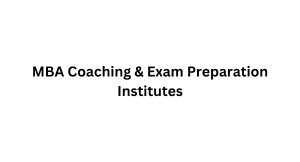
Study With Us
Reach Us
Enroll Now
© 2024, All Rights Reserved by KANNATTU EDUCATIONAL SERVICES LLP.
Overview: Preparing for the IPMAT 2025 requires a strategic and timely approach to ensure success in this highly competitive exam. With 15,000 students vying for only 150 seats, the competition is intense, making early preparation crucial. To answer the critical question, “When to Start Preparing for IPM?”, the straightforward response is to start as soon as possible—ideally, right now, even as you read this article. An early start not only gives you a significant edge but also allows ample time to balance IPMAT and board exam studies effectively.
If you are currently in the 11th grade, you have the advantage of approximately two years to prepare, enabling a more relaxed and comprehensive study plan. This time frame allows you to dive deeply into each section of the exam, ensuring thorough understanding and practice. Conversely, if you have only one month left, your preparation strategy will need to be more intense and focused, concentrating on critical areas and high-yield topics.
Starting early also provides the opportunity to identify and strengthen weak areas, practice extensively, and develop effective test-taking strategies. It allows for a gradual build-up of knowledge and skills, reducing the stress and pressure that last-minute Mugging up can cause. Therefore, the optimal time to start preparing for IPM is now, leveraging every available moment to enhance your readiness and improve your chances of securing a coveted seat.
Preparing for the Integrated Program in Management Aptitude Test (IPMAT) alongside board exams requires a well-structured approach and a clear timeline. The ideal timeframe to commence your IPMAT preparation is between 6 months to 1 year before the exam date. This allows sufficient time to cover all sections comprehensively while balancing your commitments to board exams.
Since eligibility for IPMAT requires a minimum score of 60% in XII/HSC or equivalent exams for General category students, it’s crucial not to neglect board exam preparation. A strategic study plan is essential to effectively manage both sets of exams simultaneously.
To achieve this balance, consider joining IPMAT preparation batches or classes where you can gain a deeper understanding of key concepts and receive expert guidance. These resources can help streamline your learning process and boost your confidence in tackling both exams.
By starting your IPMAT 2025 preparation early, you can gradually build your knowledge base, practice extensively, and refine your test-taking strategies. This approach minimises last-minute stress and maximises your chances of performing well in both IPMAT and board exams. Remember, effective time management and a disciplined study routine are key to success in navigating these important examinations.
Starting your preparation early for exams like IPMAT brings several significant advantages that can ultimately enhance your performance:
In summary, early preparation not only provides more time to study and revise but also allows for a structured approach to mock tests and helps in avoiding burnout. These factors collectively contribute to a more effective and successful exam preparation journey.
Certainly! While starting early does provide advantages, it’s not impossible to crack the IPMAT 2025 with focused preparation even if you have limited time. Here’s a one-month study plan designed to maximise your preparation efficiency:
This one-month study plan is intensive but structured to optimise your preparation for the IPMAT. Remember, consistency, focus, and regular practice are key to making the most out of limited preparation time.
Absolutely, focusing on your high school studies and maintaining a strong academic performance is crucial during your 11th and 12th grades. However, if you discover the IPM 2025 program later, such as in your 12th grade or closer to the IPMAT exam date, it’s still possible to prepare effectively within the available time. Here’s a brief outline of a study plan based on different preparation timelines:
Study Plan Based on Time Remaining:
Understanding the IPMAT exam syllabus and pattern is crucial for devising an effective study plan. The IPMAT (Integrated Program in Management Aptitude Test) exam typically consists of three main sections:
Sections | Quantitative Ability | Quantitative Ability | Verbal Ability |
Question Type | Objective Type Questions(MCQ) | Descriptive Type (Short Answers) | Objective Type Questions(MCQ) |
Number of Questions | 30 | 15 | 45 |
Maximum Marks | 120 | 60 | 180 |
Time Duration | 40 mins | 40 mins | 40 mins |
Section | No. of Questions | Time Duration |
Quantitative ability | 40 | 40 mins |
Logical reasoning | 40 | 40 mins |
Verbal ability | 40 | 40 mins |
Absolutely, here are the key takeaways for preparing effectively for the IPMAT exam:
© 2024, All Rights Reserved by KANNATTU EDUCATIONAL SERVICES LLP.